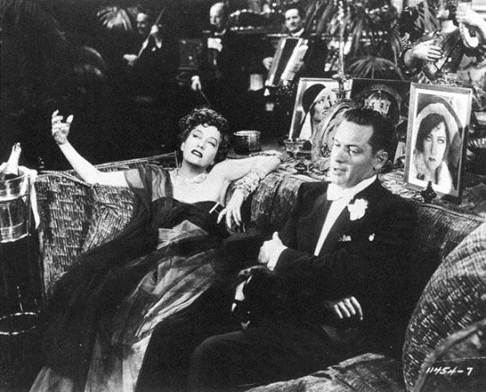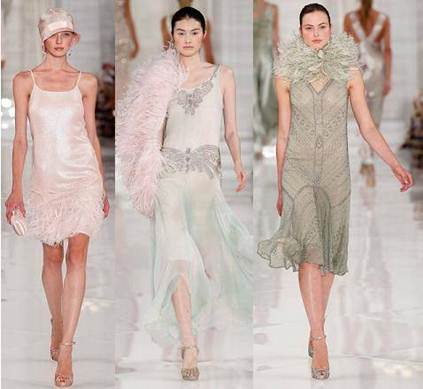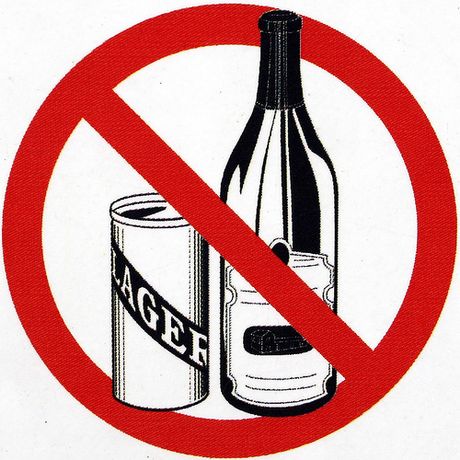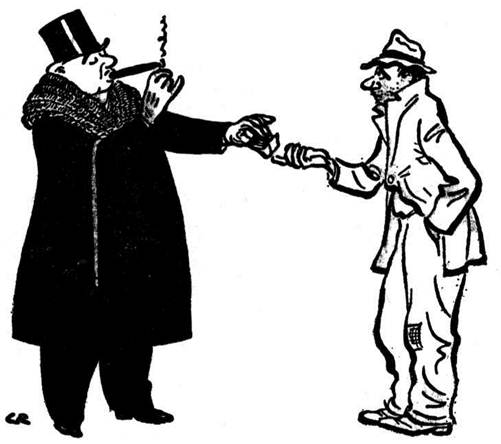“We think Board walk Empire is
influential,” says Shannon Davenport, head of the women’s editorial team at New
York-based fashion trend fore casting firm Stylesight. But the Mark
Wahlberg-produced hit is only one of the recent dramatic interpretations of the
era. Runaway British hit Downton Abbey’s second season was set in a lush ‘20s
milieu; Woody Allen’s Midnight in Paris portrayed the French capital in the
‘20s; Martin Scorsese’s art-deco Hugo, released last year, won five Oscars; and
The Artist a sweeping silent film set in Jazz Age Hollywood received massive
critical acclaim and swept the Academy Awards as well.
“These movies and shows remind us of a
certain inspiration that hasn’t been revisited for a while,” explains
Davenport. 1974’s The Great Gatsby, for example, starring Robert Redford and
Mia Farrow, “spawned a mini trend of clothes from the ‘20s,” she adds. This
December Baz Luhrmann’s 3-D version of F. Scott Fitzgerald’s classic novel
starring Carey Mulligan is set to hit theatres and fashion circles are already
buzzing.

“These
movies and shows remind us of a certain inspiration that hasn’t been revisited
for a while,” explains Davenport.
“We seem to have become fascinated with a
time when people were really well dressed,” says Dunn. But beyond the glamour,
parties and indulgence, the decade was also a period of incredible social
change and conflict because of modernization. It was, in essence, a decade-long
party ultimately extinguished by the stock-market crash in 1929, which wiped
out billions of dollars in wealth overnight and hurled much of the West into
the worst economic downturn in modern history.
“There are a lot of parallels in what we
are undergoing today,” says Kevin Boyle, a professor of history at Ohio State
University and author of Arc of justice: A Saga of Race, Civil Rights and
Murder in the jazz Age. “There was tremendous prosperity for segments of
society and also a period of profound economic inequality. There was a profound
expression of new culture, of new forms of expression and of new behaviours, so
a lot of people got scared of that. It was an incredibly vibrant time, which is
one of the reasons why there was conflict.”

“There
are a lot of parallels in what we are undergoing today.”
Blacks, Catholics and Jews faced heightened
discrimination. Prohibition, which went into effect in the United States at the
beginning of the decade, was “driven by cultural conservatism and class conflict”:
Protestant factions saw banning alcohol as a way of controlling immigrant
working classes. There was also great technological change. Radios made their
way into almost every house hold. People started buying cars. Charles Lindbergh
took his first flight across the Atlantic Ocean. Mechanization resulted in job
losses for farmers and, at the same time, opened up new employment in a
burgeoning mass production manufacturing industry. For the first time, most
people had electricity.

Protestant
factions saw banning alcohol as a way of controlling immigrant working classes.
Today, most people are connected to the
Internet. Jobs have been lost to emerging markets which are now vast epicenters
of manufacturing and cheap labour. Minorities and women have only continued to
embrace greater freedoms, and this has garnered a conservative political
backlash. Unfortunately, the gap between the rich and the poor continues to
grow.
So, while there are certainly some
generations who have experienced as much turmoil as my own, the change we’ve
gone through has been frenetic. We remember a not so distant child hood without
mobile phones or the Internet, when places like London or Paris seemed very far
away when safe paths extended out before us, leading to a home and the proverbial
white picket fence.

Unfortunately,
the gap between the rich and the poor continues to grow.
But instead, our coming of age experience
has been defined by watching wars being waged in far off places from the
comfort of our living rooms and on strangely isolating social networks. We
can’t find employment, and financial security is fleeting, at best. It feels as
if a crash may be right around the corner. So, we’re learning to live for today
because tomorrow has never been guaranteed. That’s the very mindset that
launched the Roaring Twenties, before the age was idolized for its glitz and
glamour, freedom and flippancy and creativity and optimism. As it turns out,
we’re looking hack to this decade because, well, we can relate.